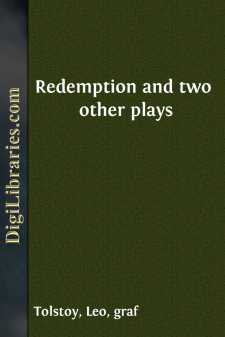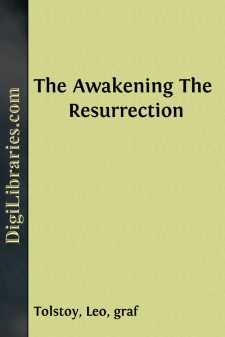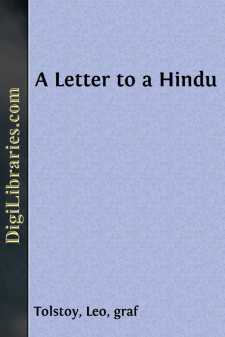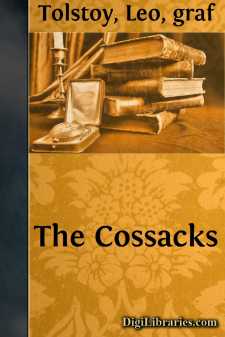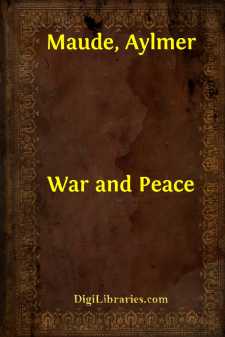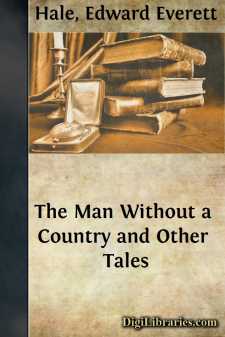Categories
- Antiques & Collectibles 13
- Architecture 36
- Art 48
- Bibles 22
- Biography & Autobiography 813
- Body, Mind & Spirit 142
- Business & Economics 28
- Children's Books 16
- Children's Fiction 13
- Computers 4
- Cooking 94
- Crafts & Hobbies 4
- Drama 346
- Education 46
- Family & Relationships 57
- Fiction 11829
- Games 19
- Gardening 17
- Health & Fitness 34
- History 1377
- House & Home 1
- Humor 147
- Juvenile Fiction 1873
- Juvenile Nonfiction 202
- Language Arts & Disciplines 88
- Law 16
- Literary Collections 686
- Literary Criticism 179
- Mathematics 13
- Medical 41
- Music 40
- Nature 179
- Non-Classifiable 1768
- Performing Arts 7
- Periodicals 1453
- Philosophy 64
- Photography 2
- Poetry 896
- Political Science 203
- Psychology 42
- Reference 154
- Religion 513
- Science 126
- Self-Help 84
- Social Science 81
- Sports & Recreation 34
- Study Aids 3
- Technology & Engineering 59
- Transportation 23
- Travel 463
- True Crime 29
The Kreutzer Sonata and Other Stories
by: Leo Tolstoy
Description:
Excerpt
CHAPTER I.
Travellers left and entered our car at every stopping of the train. Three persons, however, remained, bound, like myself, for the farthest station: a lady neither young nor pretty, smoking cigarettes, with a thin face, a cap on her head, and wearing a semi-masculine outer garment; then her companion, a very loquacious gentleman of about forty years, with baggage entirely new and arranged in an orderly manner; then a gentleman who held himself entirely aloof, short in stature, very nervous, of uncertain age, with bright eyes, not pronounced in color, but extremely attractive,—eyes that darted with rapidity from one object to another.
This gentleman, during almost all the journey thus far, had entered into conversation with no fellow-traveller, as if he carefully avoided all acquaintance. When spoken to, he answered curtly and decisively, and began to look out of the car window obstinately.
Yet it seemed to me that the solitude weighed upon him. He seemed to perceive that I understood this, and when our eyes met, as happened frequently, since we were sitting almost opposite each other, he turned away his head, and avoided conversation with me as much as with the others. At nightfall, during a stop at a large station, the gentleman with the fine baggage—a lawyer, as I have since learned—got out with his companion to drink some tea at the restaurant. During their absence several new travellers entered the car, among whom was a tall old man, shaven and wrinkled, evidently a merchant, wearing a large heavily-lined cloak and a big cap. This merchant sat down opposite the empty seats of the lawyer and his companion, and straightway entered into conversation with a young man who seemed like an employee in some commercial house, and who had likewise just boarded the train. At first the clerk had remarked that the seat opposite was occupied, and the old man had answered that he should get out at the first station. Thus their conversation started.
I was sitting not far from these two travellers, and, as the train was not in motion, I could catch bits of their conversation when others were not talking.
They talked first of the prices of goods and the condition of business; they referred to a person whom they both knew; then they plunged into the fair at Nijni Novgorod. The clerk boasted of knowing people who were leading a gay life there, but the old man did not allow him to continue, and, interrupting him, began to describe the festivities of the previous year at Kounavino, in which he had taken part. He was evidently proud of these recollections, and, probably thinking that this would detract nothing from the gravity which his face and manners expressed, he related with pride how, when drunk, he had fired, at Kounavino, such a broadside that he could describe it only in the other's ear.
The clerk began to laugh noisily. The old man laughed too, showing two long yellow teeth. Their conversation not interesting me, I left the car to stretch my legs. At the door I met the lawyer and his lady....



